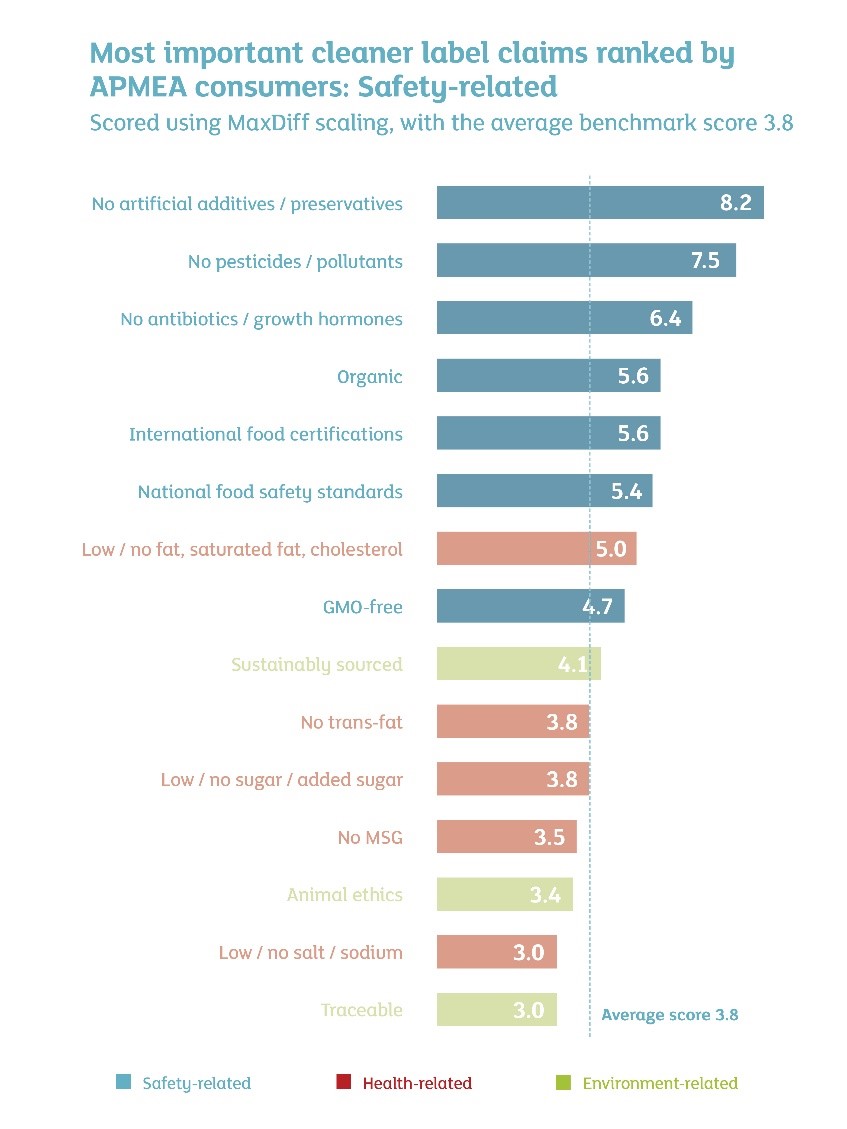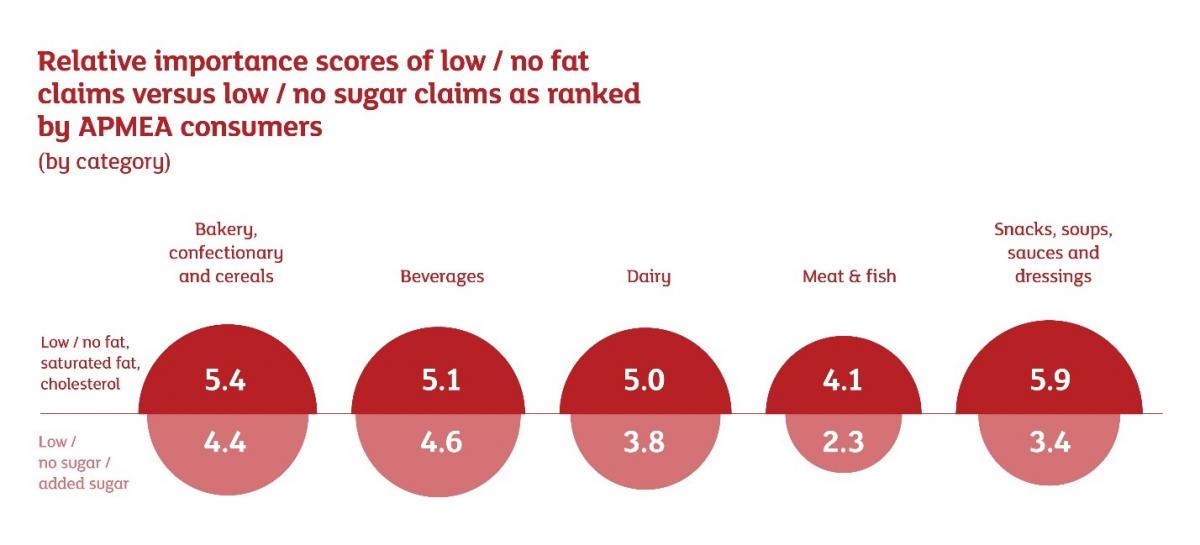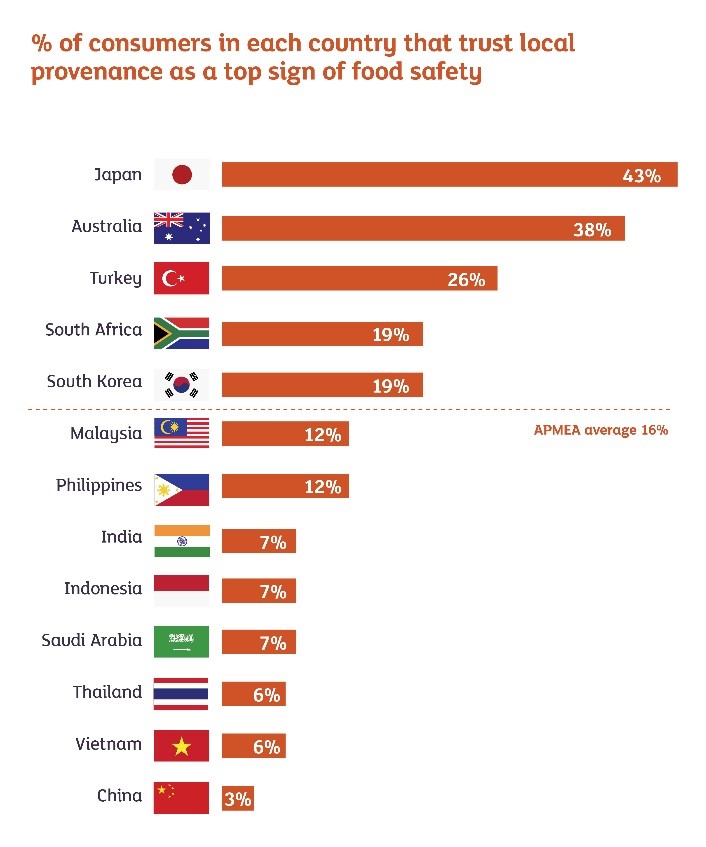Heightened awareness on fresh food and how better eating habits help manage weight and improve appearance are key findings in a new study from Kerry, the world’s leading taste and nutrition company. In Cleaner Label: Safety, Health and Environment - The New Narratives, Kerry reported that 52% of consumers surveyed in the Asia-Pacific, Middle East and Africa (APMEA) region look for cleaner label on packaging whilst shopping. The report also highlighted the differences between East and West, with cleaner label in the East grounded in the context of food safety.
“The cleaner label movement is quickly gaining ground in APMEA, and we commissioned this study to gain a better understanding of consumer priorities in the region. What’s clear is that clean eating is very different in this region, so it’s crucial that F&B brands localize their cleaner label strategies to succeed here,” said Mr. John Savage, President and CEO, Kerry Asia, Middle East and Africa.
The report, released on 28 August 2019, is based on market analysis, expert interviews and a survey of 4,000 shoppers in the region.
Food safety tops list of consumer priorities
Based on the study, safety is a primary concern for consumers. This means the absence of what buyers perceive as toxic or harmful ingredients in food. Consumers scan product labels, looking out for tags that claim ‘no artificial additives/preservatives’ and ‘no pesticides/pollutants’. Moreover, consumers are willing to pay a premium for products that are certified safe.
These findings are consistent across all categories: Snacks, Soups, Sauces and Dressings, Meat & Fish, Dairy, Beverage and Bakery, Confectionery and Cereals.

Source: Cleaner Label: Safety, Health and Environment - The New Narratives, Kerry 2019
Low fat is preferred over low sugar or low carbohydrates
Safe food also means healthy food. Consumers in this region, with the exception of Australia and South Africa, place more importance on fat reduction over sugar and carbohydrate reduction. Furthermore, 53% of the respondents indicated that they will pay more for no/low fat options. In contrast, the West leans more towards no/low sugar and carbohydrates.

Source: Cleaner Label: Safety, Health and Environment - The New Narratives, Kerry 2019
The inclination to eat healthy is driven by the desire to manage weight, thereby improving one’s appearance. Looking good seems to be a huge motivation to eating healthy, with two in five consumers in APMEA equating healthy food with food that makes them look good. This mindset is quite predominant in the Philippines and Thailand, with more than half of the shoppers thinking that eating healthy food benefits their appearance.
The concern over weight and the preference for no/low fat food can be attributed to the rising obesity rates, and obesity-related illnesses, in the region. At present, 43 per cent of consumers in APMEA are obese, an increase of six per cent from 35 per in 1991.
A personal stake in sustainable food
Sustainability also ranks high in the list of consumer priorities in APMEA, albeit in a different context than their Western neighbors. For the region, sustainably-sourced products are deemed better for the health. Again, this goes back to improving one’s appearance rather than a desire to protect the environment.
However, health is closely tied with the environment given how factors such as water pollution and soil contamination directly affect food products. Consumers are more conscious than ever, as what they eat directly impacts their health. In fact, sustainably-sourced comes at the heels of reduced fat labels, with 69 per cent of respondents preferring to purchase from companies committed to protecting the environment.
Local provenance, international standards as food safety indicators
With increased focus on cleaner labels, there is also higher dependency on local provenance. In this aspect, countries vary greatly as to how they perceive provenance and how reliable this is per market.
Countries like Japan, Australia and Turkey top the list in terms of trusting local provenance at 43, 38 and 26% respectively. Consequently, consumers in these markets tend to purchase local produce. Apart from supporting the community, they believe that local food is healthy and cost-effective.

Source: Cleaner Label: Safety, Health and Environment - The New Narratives, Kerry 2019
On the other hand, trust in local provenance is lowest in Thailand, Vietnam and China. Hence, consumers in these markets rely on international standards instead.
Opportunity for cleaner labels will continue to grow
As consumers become more discerning and more health conscious, demand for cleaner labels will also increase. Those in the F&B sector will find more opportunities for growth by highlighting health benefits within the context of food safety. Committing to preserving the environment and to supporting environment-friendly practices will help allay fears over food safety. Furthermore, going earth-friendly will also build consumer trust and loyalty to the brand.
Provenance is also a factor in building consumer trust. Oftentimes, consumers look toward provenance to assess food safety, health benefits and sustainability, thereby guiding purchase decisions.
In this region however, taste remains a critical component for purchase and consumption. As F&B companies look to creating products that meet consumer demands, it is imperative that they find a balance between safe and healthy, and tasty. -- TINA AUREUS
Air Jordan 1 Shoes














